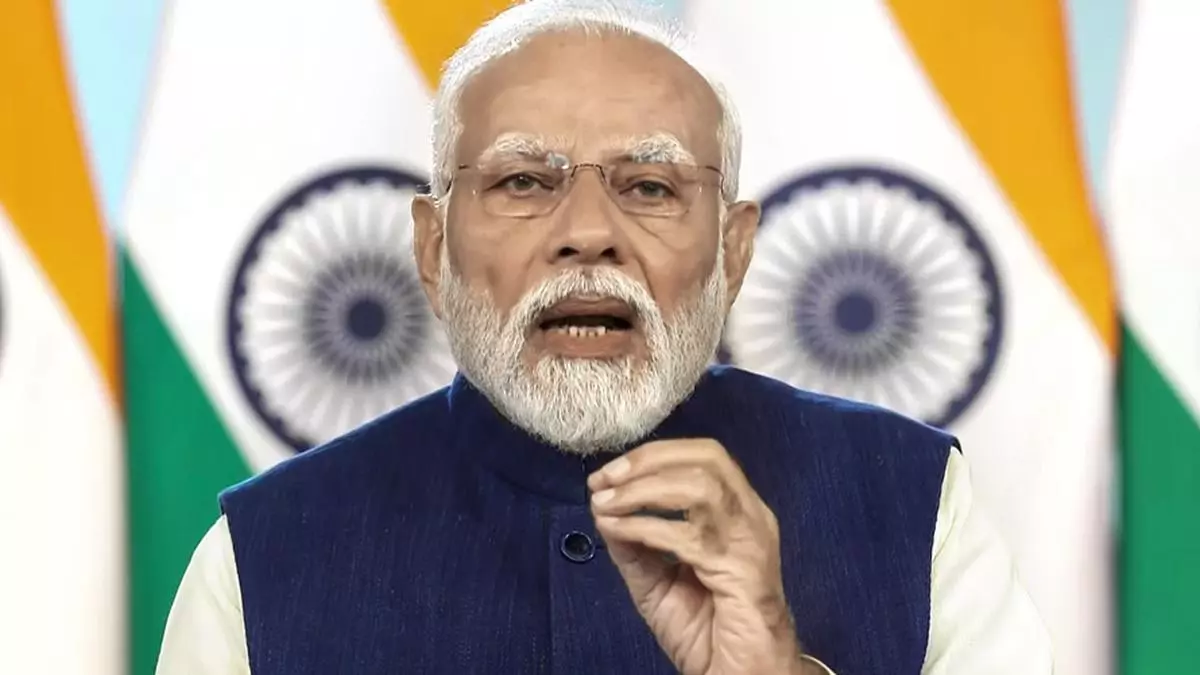Global growth of civil aviation, along with high domestic demand, has led aerospace major Boeing to remain the largest exporter of aircraft parts and software from India.
Speaking exclusively to businessline, Boeing India and South Asia President Salil Gupte cited that the aerospace major’s annual sourcing from India has grown significantly over the past decade, rising from $250 million to over $1.25 billion annually.
“This marks a substantial increase, driven by the expansion of the supplier network and advancements in manufacturing capabilities,” Gupte told businessline.
“It is also fair to say that this growth is truly remarkable considering that the production of the aeroplanes themselves on the civil side has been much lower than before the pandemic.”
Boeing remains confident about retaining its leadership as the largest foreign OEM with highest exports from India.
“Boeing will continue to invest in local manufacturing, co-production, co-development, skill enhancement, and innovation initiatives to support the growth of the overall aerospace, defence, and commercial aviation ecosystem,” he said.
‘1.5X’ growth
Besides, Boeing has been able to achieve a ‘1.5X’ growth in its supplier network over the past decade. Currently, the aerospace major has over 300 suppliers.
This trend, Gupte said, reflects steady progress, with recent years showcasing advancements in technology adoption and manufacturing complexity.
According to Gupte, having a robust supply chain in India is mutually beneficial for Boeing and India.
“A strong supply chain helps Boeing support the growth of India’s manufacturing capabilities in aerospace and defence, empowering suppliers to compete on a global scale,” he said.
“It is crucial to continue building on this success, as growing a robust and diversified supply chain across strong manufacturing and engineering bases such as India is key to building a resilient global supply chain.”
Furthermore, Gupte said that India has become the largest site for Boeing outside of the United States in terms of workforce.
“Maintaining a strong supply chain encourages cooperation and builds an environment conducive to the exchange of knowledge and the development of new technologies,” he said.
“It is imperative to invest in supplier development activities since they improve the competencies and aptitudes of Indian suppliers and bring them into compliance with international standards.”
Additionally, he said that India’s aerospace and defence sector is experiencing a burgeoning growth that is bringing together a myriad of talent.
Full order book
Presently, Boeing has a full order book from commercial and defence clients, including Air India, Air India Express, Akasa Air, SpiceJet, Blue Dart, and Quikjet in the commercial aviation sector.
On the defence side, India operates Boeing platforms such as the C-17 Globemaster, AH-64 Apache helicopters, CH-47 Chinooks, P-8I maritime patrol aircraft, VVIP aircraft (based on the 737 airframe), and Head of State aircraft (based on the 777 airframe), making India one of Boeing’s largest defence markets.
The country’s traditional strengths in engineering, extending beyond software to encompass broader engineering disciplines, have converged with a substantial improvement in manufacturing quality over the past decade, Gupte said.
“This combination of engineering excellence and enhanced manufacturing capabilities presents a remarkable opportunity for industrial companies to invest in India.”
In addition, Gupte pointed out that initiatives like “Make in India,” financial incentives, and infrastructure development have created a conducive environment for growth.
“Boeing’s investments reflect our confidence in the country’s potential. Boeing’s strategic focus on fostering and empowering its supplier network has been key,” he said.
“This growth is propelled by significant advancements in quality and capability along the value curve, transitioning from simple assemblies to more complex ones, including advanced materials like composites and full-size determinant assembly (FSDA), which employs next-generation manufacturing technologies such as robotics.”
Globally, Boeing is rebuilding after a challenging year, which included the Alaska Airlines incident, and a machinist strike. The company has taken significant steps to address concerns, including organizational restructuring, heightened focus on safety and quality, and the recent resumption of 737 Max production at its Renton facility. These measures signal Boeing’s commitment to stabilizing operations and rebuilding trust.









Leave a Comment